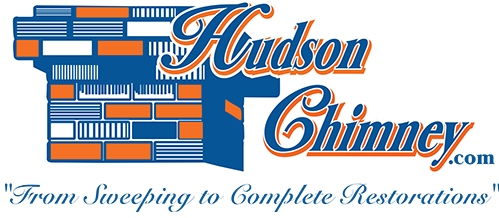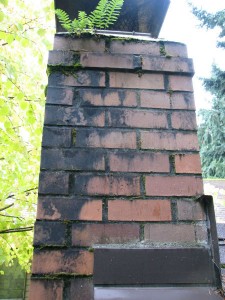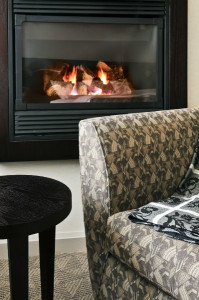Early Preventative Chimney Maintenance
There are a lot of risks involved with having a chimney. Chimney fires, carbon monoxide poisoning, and expensive repairs are some of the more worrisome problems. However, you can protect your home, your health, and your wallet easily with early preventative maintenance. Hudson Chimney can inspect and clean your chimney, make sure it is properly installed, and make and carry out recommendations that will keep your home safe and maintained.
One easy way to prevent chimney fires and ventilation problems is to have your chimney cleaned professionally. The Chimney Safety Institute of America recommends that you have your chimney swept annually. Whenever you use your chimney, a substance called creosote builds up. Creosote is both highly flammable and blocks smoke and gasses from leaving your home. Furthermore, creosote can build up into glazed creosote, which has to be removed by a professional with chemicals to avoid ruining your chimney. The professionals at Hudson Chimney would be more than happy to inspect your chimney for creosote buildup and clean it to provide you with a safer home.
Water that enters your chimney can also cause extensive water damage, including mold growth, insulation damage, and even the destruction of your chimney. In order to prevent water from entering your home through your chimney, you should have Hudson Chimney install a cap or damper (every chimney should have one of the two). A cover will not only prevent water from entering and damaging your home, but it will also prevent animals and other debris from getting inside your chimney. Keeping your chimney clear of animals and debris is important for proper ventilation and keeping toxins out of your home.
Water can also seep through the brick or mortar of your chimney, however. This can also cause water damage to your home as well as cause cracks to form and be enlarged, shortening the life span of your chimney. Therefore, it is important to have Hudson Chimney apply a repellent to your chimney stack. A repellent will prevent water from seeping into the materials of your chimney while still allowing it to breathe, which enables water produced in your chimney to leave it.
You should have Hudson Chimney inspect your chimney to make sure that it is also installed correctly. Sometimes an appliance can have a flue that is too big or too small for it, causing draft problems. With a flue that is too small, ventilation will not occur properly, allowing toxins to enter your home. With a flue that is too big, on the other hand, creosote will quickly build up, causing a fire hazard and also preventing proper drafting.
If you are worried about the potential disasters your chimney can cause, you will find how easy it is for you to protect yourself and your home by calling Hudson Chimney. They will make sure that your chimney is working safely and efficiently and put your mind at ease.


